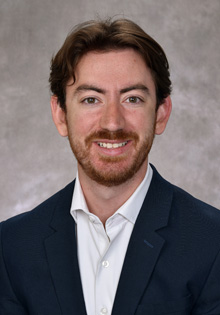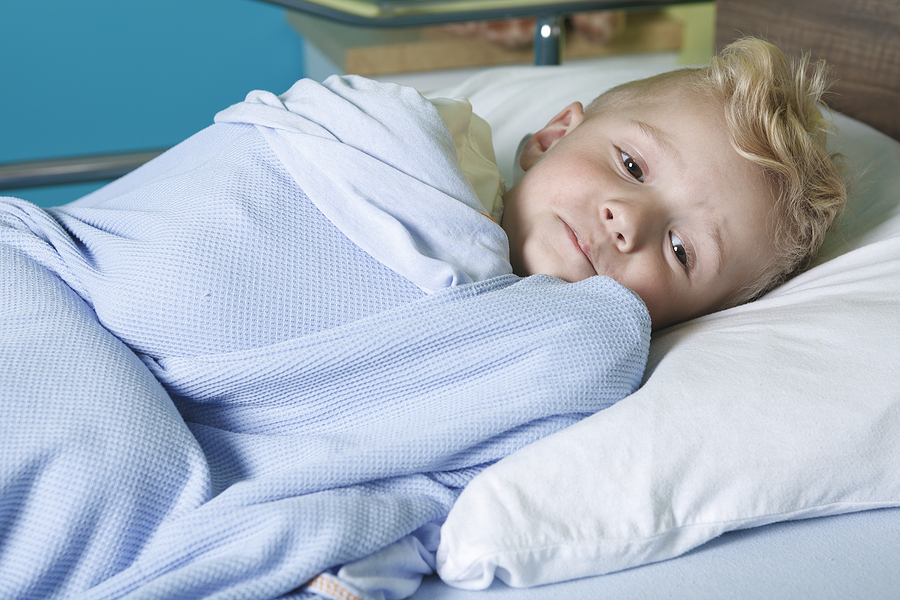I am 4 years old, and my dad carries me to The Room Full of Nurses. This is where they put me to sleep. I never know what for, but I like the lady in the sparkly shirt. She carries my favorite book, about a knight storming a castle with a big moat and even a dragon inside. I lay on my side and help her turn the pages. As the three-dimensional pictures pop out, the nurses push the mystery liquid into my veins. My cheeks grow heavy, then my wrists, and finally the crown of my head falls into the bed. That was another morning with leukemia.
We rarely look fondly on medical circumstances of the past, but I feel grateful today that I had pediatric cancer in 2002 instead of in 2025.
My body grew plump, my face puffy and my head bald. Long courses of steroids and chemotherapy wore on my body. I started kindergarten late, but I still went. I carried a special binder with me to help the school care for me. I took medications twice a day at school, and the nurse checked my butt after lunch to make sure I wasn’t developing sores. I washed my hands before and after every meal and recess, and my teacher separated me from large group activities. All of this kept me safe from life-threatening infections.
I had no functional immune system. Any fever meant an immediate trip to the emergency room, a 48-hour hospital stay, and IV antibiotics through the port in my chest. I looked different from my peers, missed out on birthday parties and swimming lessons, and constantly got singled out for “special” treatment. But I had one extraordinary protection that we all took for granted — herd immunity.
Herd immunity occurs when enough people carry antibodies against a disease, allowing even those without immunity to stay protected. This is the miracle of vaccines, which helped boost global life expectancy from 45.7 years in 1950 to 72.6 years in 2019. Vaccines granted me herd immunity when my body could not fight disease, which allowed me to attend school and have developmentally necessary social interactions.
It wasn’t perfect. I still got the chickenpox, since the vaccine had only been available since 1995. I remember wearing oven mitts, trying not to scratch as I rolled feverishly in bed. But I never caught measles, mumps, hepatitis A, or other vaccine-preventable diseases — partly because people trusted science and vaccines, and partly because public schools required them.
Now, that has changed. Verifiably false claims about vaccines spread like wildfire from social media timelines to the halls of the Capitol. On September 3, Florida announced it will end its vaccine mandate for public school attendance. Florida’s surgeon general said, “People have a right to make their own decisions. Who am I, as a government or anyone else, to tell you what you should put in your body? Our body is a gift from God. What you put into your body is because of your relationship with your body and your God.”
Ironically, his argument echoes the pro-choice community’s defense of abortion rights. Bioethics literature justifies abortion on the grounds of bodily autonomy: even if we grant a fetus personhood, no one must allow another to subsist on their body without consent. Here, the Florida surgeon general argues similarly that no one can tell people what to put in their bodies.
This argument fails in the context of vaccine mandates because the sacrifice is so small compared to the public health benefit. Vaccines rank among the most thoroughly studied and effective medical interventions available. Even if you reject that evidence, alternatives to public school exist for those who oppose vaccines. Private schooling and homeschooling are viable options for families who choose not to vaccinate.
When states lift vaccine mandates, skeptics make choices not only for themselves but also for the families of our most vulnerable children. Kids with cancer, immune deficiencies and autoimmune disorders see their futures dictated by the healthy majority. That is ethically unambiguous. The small, rare risks of vaccines do not justify exposing medically fragile children to preventable disease.
We already saw this play out in January 2025. A measles outbreak exploded in West Texas, and refusal to vaccinate spread the disease far beyond those communities, including across state lines. The same will happen in Florida. This is a federal issue, and the federal government has a responsibility to intervene and protect children nationwide.
Beyond the unnecessary suffering, preventable disease will strain our already overburdened healthcare system. Every winter, children’s hospitals overflow with RSV, coronavirus and rhinovirus. Adding outbreaks of measles, mumps, or, God forbid, polio will impose staggering financial and resource costs that ripple through families and communities.
The answer is clear, and the time to act is now. Professional health organizations must rally behind mandatory childhood vaccination for public schools and advocate for a federal mandate.
When I care for children with cancer in the hospital, I celebrate the remarkable new therapies that can cure many of them. Yet, I still feel fortunate to have been critically ill in 2002. Because at least when I woke up from anesthesia back then, I lived in an America that believed in science and in our responsibility to protect its most vulnerable children.


